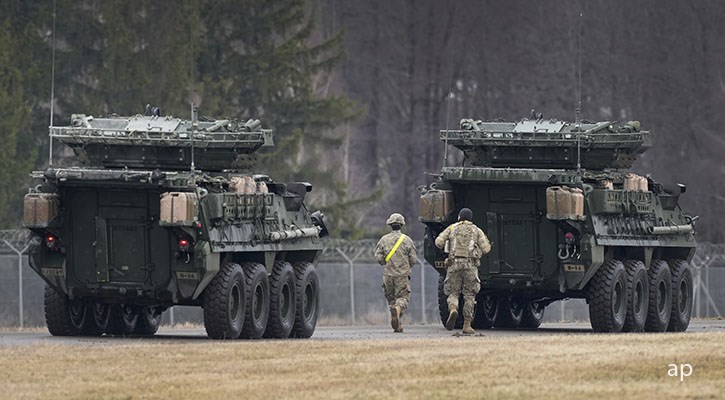Ruth Saldanha: The war in Ukraine has caused anxiety and panic across the world. In Canada, we are relatively insulated from the immediate impact of the conflict, but longer term, we could start to see some fallout. So, what should Canadian investors do about their portfolios at this time? Virginia Au is the Head of Global Equity at Leith Wheeler Investment Counsel and heads up a team that manages a concentrated global equity strategy for private clients. She is here today to discuss how she is handling the geopolitical risks. Virginia, thank you so much for being here today.
Virginia Au: Thank you. It's great to be here in person in the studio again.
Saldanha: So, let's start by talking about the whole Ukraine situation. Over the short term, what impact do you think it would have on Canadian investors?
Au: Yeah. First, I think the Russian attack on Ukraine is horrific. Our thoughts are with the family and people there, and we hope that the war will end soon. In terms of the shorter-term impact, the biggest thing you can expect is higher energy prices, right? Russia is 17% of global natural gas supplier. They're the second largest in the world and actually the biggest supplier for Europe. And then, in terms of oil, they supply about 11% for the world. So, again, with this volatility we expect elevated energy prices to remain going forward.
And then, the second thing is risk to other commodities. Ukraine is actually known as the breadbasket of Europe because they produce a lot of wheat, barley and corn, and Russia and Ukraine combined produce about 30% of global production for wheat. So, you can definitely expect higher food prices and there will be pressure there for inflation. So, all this combined you can definitely see a lot more volatile interest rate, central banks' decision as to what they're going to do, inflation and then borrowing costs and equity valuation and then global economic growth rate.
Saldanha: Over the longer term, do expect any of this will change? Or do you see more of the same even over the longer term?
Au: Yeah, I think, this is where it gets really interesting. Whether Russia win or lose, it will definitely have impact on other regions. If you look at the longer term, for example, in Europe, I think the one thing to look for is Russia relationship with Finland. They share a border. Both Finland and Sweden are European EU members, but they are not NATO members, and in the past, they have stayed rather neutral with the option to join NATO anytime they want. But Russia has said very strongly that they don't want any NATO forces on its border. And if that does happen, they will respond with very severe consequences. So, that is a risk there, the relationship between them and it might change going forward.
The other part of the world is Asia. So, the China and Taiwan relationship is very delicate. U.S. military support Taiwan, but China wants reunification with Taiwan. And so, that makes it complicated. And if China do decide to take Taiwan by force, it impacts not only Taiwan, but it actually impacts the region security. Japan will be impacted because Japan right now relies on U.S. military for defense, and a lot of the country – and also South Korea also will be impacted – a lot of countries around the South China Sea will also see a difference in kind of order in that region. So, again, that's something to be watchful for.
I wouldn't say any of these risks are imminent. So, I would call them tail risks because the ramification of them is very large and you have already seen some of the countries, for example, Germany, who historically has taken a more neutral approach to defense, have announced increase in defense budget, and we probably expect a lot of individual countries to increase their defense budget going forward. So, those are definitely things to watch for in the longer term.
Saldanha: Is there anything that Canadian investors should be doing right now?
Au: Yeah, I think, in terms of direct exposure to Russian holdings, I don't expect a lot of investors will have a high exposure because Russia is only less than 4% of MSCI emerging markets benchmark weight. So, I think that direct exposure will be limited. The exposure that Canadian investor will have is on higher energy price, but that will actually benefit the Canadian energy sector and also the Canadian dollar. So, we expect the Canadian dollar to remain strong when oil prices are strong.
The other side – the flip side of that is inflation. Higher inflation will impact a lot of different sectors and just overall food prices and things like that going up. So, I think it's good for investors to stay the course. Because if you look back, in the short term, this will definitely be a very bumpy road. But in the longer timeframe, when you look back into other geopolitical events, a lot of the initial drop tends to get recovered within one to six months. So, it is good to still stay the course of being invested, and I think just take a measured approach.
Saldanha: Thank you so much for joining us today with your perspectives, Virginia.
Au: Thank you. That's great.
Saldanha: For Morningstar, I'm Ruth Saldanha.




















